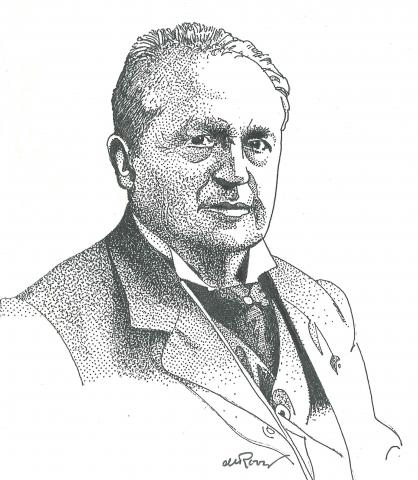A revised and updated version of
Abraham Kuyper: An Annotated Bibliography 1857-2010 by Tjitze Kuipers (2011)
You can buy a printed edition of this book on the site of the publisher.
1919
After being sworn in on September 18, 1917, for a second term (cf. 1912.02) in the First Chamber, Kuyper addressed the chamber on March 12, 1919. During the general deliberations on the national budget for 1919, Kuyper discussed Belgium’s plans to annex Zeeland Flanders and sections of South Limburg. He also spoke about blockading the Schelde River, which provides the only shipping lane to Antwerp. He then discussed the limited influence of the League of Nations, noting that neither the League nor the Peace Palace in The Hague had assisted with the peace negotiations after the Great War. In a final impressive and striking speech, in respect both of composition and of content (and elaboration as well), he called attention to the defence of the Dutch East Indies. The colonies, according to Kuyper, were threatened both internally and externally (by Japan in particular). Awakening pursuit of independence together with the generation of an Asian world power could endanger the position and national glory of the Netherlands. To counter this threat, timely and thorough measures were necessary (pp. 234–235). Kuyper also spoke about the labor question and the homogeneity between the First Chamber and a proposed new Kamer van Belangen [Chamber of Interests] (pp. 231–237). On March 19 Kuyper argued that the Ministry of Foreign Affairs’ budget be increased so that diplomatic services and foreign legations might be expanded. He also contended that it was in the interests of the Dutch general public to improve relations between the Ministry of Foreign Affairs and the press (p. 307). During the debate about the defense budget on April 4, Kuyper discussed the desirability of renaming the Ministry of War, which he contended was actually a Ministry of Defense. During deliberations about the current political situation abroad and making special reference to England, he later spoke about the significance of sports for promoting military readiness. After commenting on the critical need for a system of defensive works in the Netherlands, Kuyper rounded off his contributions by asking that special attention be given to chaplaincy for the armed forces. The government had decided to assign chaplains to mobilized troops (by royal decree of August 28, 1914), but it did not provide financial support for this measure—thereby placing an unexpected burden on the churches (pp. 411–415).
Kuyper resigned his membership of the First Chamber on September 21, 1920 (see 1920.08).

